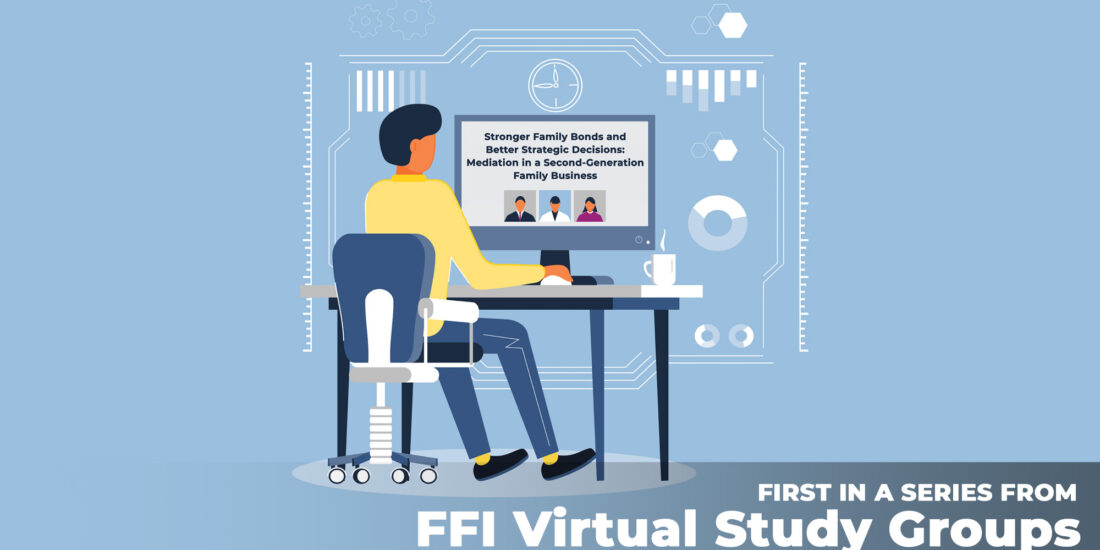Concepts of Money
Money is an all-powerful, persuasive, and influential medium of exchange — and has been from the beginning of recorded history. Merriam Webster defines it as a measure of value or a means of payment, but money’s influence is far more ubiquitous. It could be argued that the genesis of most family conflict is money and money’s influence on the family enterprise system.
Money ranks up there with the most significant developments that have helped advance civilization. Without money, the Dutch could never have bought the island of Manhattan from the Native Americans for $24 in 1626. Today, without money, the family enterprise system would not be the keystone of most developed economies in the world. Money is the common component that ties the family enterprise across generations, and the family’s understanding of money’s purpose can be the difference between success and failure in most enterprises.
Money, its definition and use, is confusing and not well understood. Ask ten people to define money and most likely you’ll come up with ten different responses. This makes it difficult to appreciate and understand how it is the foundation that supports the family enterprise system. In many family enterprises, whoever earns the money, and/or whoever controls it, dictates the fate of the family and, therefore, the business. To understand money is to understand how the family is controlled and by whom. Richard Wagner, JD, CFP, a leading theorist and researcher on the subject of money says:
“Money constitutes a pervasive and powerful secular force. Money is embedded in virtually every public and private issue of significance. Because it shows where our hearts are even as it reveals value systems and priorities. Because we can usually find money lurking about wherever we find either alienation or mutuality between humans or groups of humans or humans and the world around us.”
Stated differently, money is an all-powerful, persuasive, and influential force.
Money as a source of conflict
Within the family enterprise, whether conflict results from financing for expansion, reduction in distributions, or employees’ desire for additional income, the individual’s perception and/or need for money influences the outcome. One shareholder may object to personally signing on to bank debt even if the expansion is in the best interest of the company because of the shareholder’s fear of losing money and thus, the need for financial security. Fights and disagreements over dividend reductions, particularly with non-working shareholder’s that do not understand the internal operations of the business, are often about money’s ability to alter lifestyle and the shareholder’s sense of self-worth around money. The vote for quick, short-term gains usually has at its base, the desire to fund personal wants that have nothing to do with the long-term viability of the business. In all three examples, the failure of the family members to understand what the purpose of money is and how money influences the family enterprise, positively or negatively, will create conflict.
Money’s influence on the family enterprise is more than internal rates of return, asset allocation models, or corporate debt service coverage ratios embedded within bank loans. In a family enterprise, money’s influence is associated with concepts that go back through the ages. Aesop’s fable “The Goose That Laid the Golden Egg” and King Midas in Greek mythology convey moral allegories about the individual’s relationship with money – mostly it’s greed.
Greed
Greed and entitlement within the family enterprise is as alive and flourishing today as it was hundreds of years ago. In Aesop’s fable, a cottager and his wife had a hen that laid a golden egg each morning. Assuming that the hen must have a storehouse of eggs inside her, they killed the hen to get the gold. Expecting an immediate windfall, they deprived themselves of the gain they enjoyed daily due to greed.
The same unfortunate result occurs today when a family business is sold. Investment bankers promise shareholders immediate gratification, riches and the good life, but the result is something different. According to the National Endowment for Financial Education, 70 percent of people that come into sudden money are broke within a few years. All too frequently, the family that sells a sustainable business learns painfully that sudden wealth is not as secure, enjoyable, or predictable as the stream of income the business generated.
The moral of the King Midas tale is that one should not be greedy and should appreciate what one already has, no matter how large or small. However, in popular culture throughout the world, the idea of having everything you want is known as the American Dream. What popular culture doesn’t talk about is the misunderstanding of the American Dream, or as Mick Jagger sang, “You can’t always get what you want.”
We see this desire for more material goods and subsequent greed in families fighting over small percentage differences in distributions and ownership. The desire for more money can tear away the fabric of the business and the family unit. Many shareholders understand the rewards and benefits money offers, but not the discipline, time, and knowledge required to make business decisions to sustain profitability. Greed is the incubator of family conflict around money.
The Tagiuri and Davis three-circle model of the family business system has proven to be an effective interpretation to the unique family enterprise structure. The model has assisted practitioners engaged in studying family enterprises to understand the unique and overlapping structure embedded within a family enterprise. What it doesn’t communicate is the inescapable influence of money on the merger of the three systems: ownership, family, and business. Money is the common factor at the intersection of each overlap and its influence is pervasive.
Money and the family enterprise
The understanding of money is the difference between families that function cooperatively and those that are dysfunctional. A strong, vigorous relationship and understanding of the purpose and use of money generate flourishing family enterprises. In family enterprises, money is not a commodity, but a defining element that influences and defines the enterprise. It is the common link among: family, business, and shareholder.
Money’s influence on the family enterprise, as a topic, has not received the academic research and attention that the subject deserves. Without it, family enterprise would not be the foundation of most of the economies in the developed world creating 70%-90% of global GDP annually and accounting for two-thirds of all businesses around the world. Money is the common thread that ties the family business across generations and the understanding of money’s purpose and influence within the family enterprise system can be the difference between success and failure.
As part of the world’s leading authority on family enterprise, the Family Firm Institute’s members should work together to understand what money is and how it influences the family enterprise. We need to understand what Emerson meant when he said: “Money, which represents the prose of life, and which is hardly spoken of in parlors without an apology, is, in its effects and laws, as beautiful as roses.”
About the Contributor
 Randolph Waesche, FFI Fellow, CFP, is president and CEO of Resource Management, LLC a Louisiana Registered Investment Advisory firm that has been selected be Financial Times as one of the top RIA firms in the country for the past three years. He has more than 34 years’ experience as a financial consultant and family business advisor. Randy and his firm are long-time sponsors of the Family business Review and the FBR Best Reviewer Award. He can be reached at randy@rmiadvisors.com
Randolph Waesche, FFI Fellow, CFP, is president and CEO of Resource Management, LLC a Louisiana Registered Investment Advisory firm that has been selected be Financial Times as one of the top RIA firms in the country for the past three years. He has more than 34 years’ experience as a financial consultant and family business advisor. Randy and his firm are long-time sponsors of the Family business Review and the FBR Best Reviewer Award. He can be reached at randy@rmiadvisors.com





